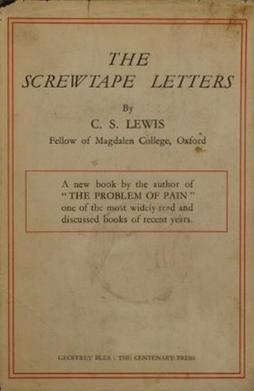 Elizabeth Scalia (aka the Anchoress) wrote a reflection, Another Long Lent, and Broods of Vipers, earlier this week that was featured in the On the Square section of the First Things website. She points to all of the scandals and rumors of scandals that continue to plague the Church, then reminds us to look up. The One that we follow, the only one who will never let us down, is Christ. He (in union with the Father and the Holy Spirit) is the proper focus of our faith, not any of the Church’s human members.
Elizabeth Scalia (aka the Anchoress) wrote a reflection, Another Long Lent, and Broods of Vipers, earlier this week that was featured in the On the Square section of the First Things website. She points to all of the scandals and rumors of scandals that continue to plague the Church, then reminds us to look up. The One that we follow, the only one who will never let us down, is Christ. He (in union with the Father and the Holy Spirit) is the proper focus of our faith, not any of the Church’s human members.Her words were reassuring.
Then I read some of the comments and was brought back to the edge of despair.
 Then there’s Patrick Madrid’s contribution, Don’t Be Discouraged. Subtitled “Hold Your Head Up High, This is a Great Time to be Catholic,” the Envoy Special Report comes complete with an illustration of a band of Christians praying in the stadium dirt as hungry lions and tigers are released to do what hungry lions and tigers do to helpless humans. Patrick has two essays, one on what we can learn from St. Francis DeSales and one on common excuses for not evangelizing. His message seems to be something akin to “Man-up and accept your mission! It might be a tough time to be a Catholic, but do it anyway! If you aren’t suffering like the saints, you should be!”
Then there’s Patrick Madrid’s contribution, Don’t Be Discouraged. Subtitled “Hold Your Head Up High, This is a Great Time to be Catholic,” the Envoy Special Report comes complete with an illustration of a band of Christians praying in the stadium dirt as hungry lions and tigers are released to do what hungry lions and tigers do to helpless humans. Patrick has two essays, one on what we can learn from St. Francis DeSales and one on common excuses for not evangelizing. His message seems to be something akin to “Man-up and accept your mission! It might be a tough time to be a Catholic, but do it anyway! If you aren’t suffering like the saints, you should be!”This is supposed to be comforting?
A significant portion of my temptation to despair stems from the realization that, as our country hurtles toward a debt crisis like a car speeding toward an abyss, we are incapable of doing anything about it. While a handful of politicians frantically try to slam on the brakes, it has become evident that the brake lines are ruptured, and their efforts result only in the spurting of fluid on an over-heated engine. I desperately want to believe that enough of my fellow Americans are awake to the danger to make avoiding the catastrophe possible.
 Unfortunately, as Peter Robinson recently learned from conversations with Mark Steyn and Tucker Carlson, too much of the electorate is on the receiving end of government largesse, and they are not inclined to give it up.
Unfortunately, as Peter Robinson recently learned from conversations with Mark Steyn and Tucker Carlson, too much of the electorate is on the receiving end of government largesse, and they are not inclined to give it up.My thoughts have turned from whether there will be a reckoning to when. If we’re lucky, it won’t be for another 15-20 years, but any perturbation could spark the panic. If you thought 2008 was fun, just wait until the next big financial crisis arrives. I don’t know what happens then, but it fills me with dread.
And that is exactly what Wormwood wants.
 Yes, I’ve been reading The Screwtape Letters, by C. S. Lewis. In the 15th letter, Wormwood is advised by his uncle, Screwtape, to keep his man’s attention on either the past or the future, whether a future of hope or of anxiety. Anything that takes his attention off of the present will do, so long as he is not “aware that horrors may be in store for him and is praying for the virtues, wherewith to meet them.” Preparing for tomorrow doesn’t count, either, since the duty to prepare is today’s duty.
Yes, I’ve been reading The Screwtape Letters, by C. S. Lewis. In the 15th letter, Wormwood is advised by his uncle, Screwtape, to keep his man’s attention on either the past or the future, whether a future of hope or of anxiety. Anything that takes his attention off of the present will do, so long as he is not “aware that horrors may be in store for him and is praying for the virtues, wherewith to meet them.” Preparing for tomorrow doesn’t count, either, since the duty to prepare is today’s duty.So, then, my task is to remain focused on embracing and fulfilling God’s will today, to pray for the virtues that I will need tomorrow, and to make preparations. If I had the resources, I think I would be building and stocking my bunker.
